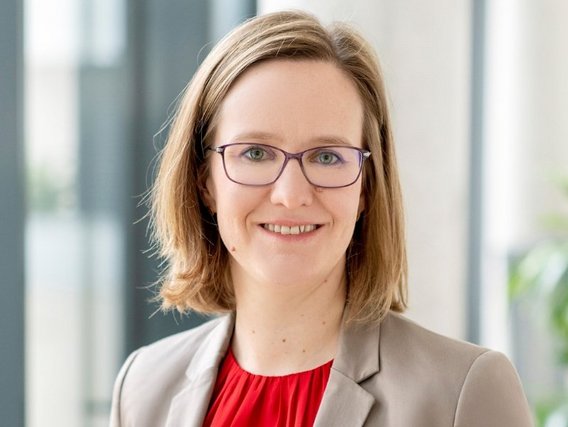Climate change
Sustainability as a competitive advantage
Sustainability as a competitive advantage.

Climate change
Sustainability as a competitive advantage.

26 September 2024
When companies act responsibly, they not only preserve our natural resources. By providing transparent evidence of their sustainability, they can also strengthen trust in their services and products, promote their competitiveness and make themselves an attractive employer for skilled workers.
The fact that climate change has become the most important global challenge in view of the far-reaching consequences of global warming has been recognised by the general public since the Kyoto Protocol of 1997 at the latest. Today, it is not only large companies that want to know from their suppliers how sustainable their operations are. Society also demands proof of the ecological, economic and social impact of their business activities. "In the long term, it is highly advisable for companies to pay attention to sustainability in order to still be able to do business in five or ten years' time," says Susanne Günzerodt, sustainability expert at TÜV NORD. "Verifications and certifications in the area of sustainability contribute to a company's credibility."
Overall, everyone can be sustainable. Even smaller service providers can have their carbon footprint verified. Others go one step further: "The life cycle assessment is the big brother of the carbon footprint. In addition to CO2, it also looks at other environmental aspects of a product, such as water consumption," explains the industrial engineer. Some proof of sustainability pays off immediately in cash: Biogas operators, for example, receive remuneration if they can present certification or a corresponding expert report. TÜV NORD accompanies and supports companies and organisations from all sectors with comprehensive expertise in the areas of climate protection and sustainability.
When you think of sustainability, the first thing that comes to mind is CO2. But there is much more behind the term. Conserving resources and saving energy are important cornerstones. However, sustainable behaviour also includes social aspects: Does a company look after the health of its employees? Does it ensure that they enjoy working for the company? Answers to these questions are provided by audits in the area of social standards by independent testing organisations such as TÜV NORD.
This range makes it clear that there is currently no standardised sustainability certificate. TÜV NORD's portfolio ranges from the verification of a company's carbon footprint and the certification of sustainable supply chains to the validation and verification of climate protection projects. In short, validation involves checking whether a climate protection project makes sense and is feasible on paper before it is launched. Verification involves regularly checking what emission reductions the project actually achieves and whether the criteria set out in the relevant standard are continuously met.
Whether company, product or service - the market in the areas of sustainability and climate protection has developed enormously in recent years. New standards are constantly being created: TÜV NORD is the pilot certifier for the forest climate standard, for example. "This is still a new standard," explains Günzerodt. "It is aimed at forest owners who want to reforest areas that have been damaged by climate change - to create climate-resilient forests." The standard creates financial incentives for investments in the protection and sustainable management of forests and gains acceptance on the market through external certification.
The key to all CO2 reduction projects is to understand that CO2 is a global issue. "Ultimately, it doesn't matter whether CO2 is emitted in Germany, India or Australia," says the expert. The purpose of the projects is to save CO2 where it can be saved most cost-effectively. Günzerodt uses an example to illustrate this: "If it costs me 20 cents to save one tonne of CO2 in Thailand and I have to pay 20 euros for it in Germany. Then I can save one tonne in Germany and 100 tonnes in Thailand with my investment of 20 euros. So it makes sense what I should do."
The Supply Chain Due Diligence Act (LkSG) is also currently a major topic in many industries. "Many companies are now imposing sustainability requirements on their suppliers," says Günzerodt. "Corresponding certificates in accordance with the most internationally recognised standards possible offer companies in the supply chain objective proof that sustainable aspects have been brought into focus and requirements have been met. In this way, weak points can also be specifically identified and corrective action can be taken."
In view of finite resources, an interesting topic is developing around the circular economy and recycling. "The exciting question here is how we can design our products in future so that they can ultimately be easily recycled without any major loss of quality. How can we reduce the volume of waste and rubbish we dispose of?" asks Günzerodt. The expert is convinced: "Corresponding evidence will play a major role in the future."
A future that younger professionals in particular are focussing on: For more and more applicants these days, the three pillars of sustainability - ecology, economy and social issues - are helping to decide whether or not they want to work for a company. Susanne Günzerodt puts it in a nutshell: "Sustainable companies have an advantage over their competitors here." Proof of sustainability helps with this.

Susanne Günzerodt heads the Sustainability Business Entity at TÜV NORD CERT. In the area of sustainability and climate protection, TÜV NORD CERT combines services for CO2, sustainable supply chain, energy and environment as well as social standards.
This is an article from #explore. #explore is a digital journey of discovery into a world that is rapidly changing. Increasing connectivity, innovative technologies, and all-encompassing digitalization are creating new things and turning the familiar upside down. However, this also brings dangers and risks: #explore shows a safe path through the connected world.